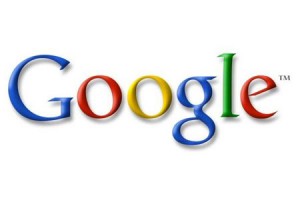I was reading the article about Google™ getting denied on their trademark application for the name Nexus One. To quickly summarize the story, Google™ wanted to trademark the name Nexus Phone because of their new phone to be release, but apparently another company had already registered this name over a year ago.
The USPTO has denied the application and now we all await to see what happens. I don’t think Google™ will have  any problems with this, but the whole story got me thinking about trademarks in general and the ensuing battles between stakeholders. More specifically, I started thinking about trademarks becoming genericized and what would happen to if Google™ simply became, google…
any problems with this, but the whole story got me thinking about trademarks in general and the ensuing battles between stakeholders. More specifically, I started thinking about trademarks becoming genericized and what would happen to if Google™ simply became, google…
Genericizing is when the mainstream public starts using a trademark name as a generic word to describe a product or service. This usually happens by mistake, but it’s root cause stems from a company that has maybe done too great a job at marketing! Or maybe they just left a much larger impression on the public than previously expected.
Trademarks that can become genericized
To better define what I’m talking about, take the following list of brand names and ask yourself this question: Do I refer to every similar product by these names?
- Kleenex® – The proper term for any facial tissue not made by Kleenex® is simply facial tissue.
- Q-Tips® – Off brands are known as cotton swabs.
- Xerox® – You didn’t make a “xerox” of something unless you did it on a Xerox® copy machine.
- Adobe Photoshop® – People always attribute all photo editing as “photoshopping”, but this is incorrect. (Side note: I was reading an interesting page on Adobe’s own website outlining the proper usage of the term and all of their trademarks and it’s very specific.)
- Band-Aid® – What else would you call it? That’s right, a bandage.
- Blow Pop® – Not every sucker is one–just the ones made by Charms® which is now owned by Tootsie®.
I’m pretty sure you get the gist by now. So, what might happen if the brand name Google™ became a generic term for searching? If you really think about it, how many times a week do you tell someone to “google it” when they ask you something you don’t know? How many times a day even?!
I was watching an episode of the recently cancelled show, The Forgotten and in one of the scenes, they are searching Google™, but the logo was replaced with one of similar colors and simply titled ‘Web Search’. The rest of the page was google and it was clearly obvious. Ok fine, they didn’t want to pay for the use of the name, but…
In another scene, someone asks this woman how they got their information and she clearly says, “We googled it…” For anyone who knows anything about the trademarking process, you know that part of your responsibility as a trademark owner is to protect your brand and part of this protection is to ensure that it does not become a genericized term (as Adobe® outlines on their website above).
Trademarks that lost their trade value
To further clarify my point, here’s a list of some terms that were once valued trademarks:
- Aspirin – Bayer® used to own this as one of their trademarks until it was declared generic.
- Cellophane – Originally owned by DuPont®.
- Dry ice – Believe it or not, the Dry Ice Corporation of America once owed this term!
- Escalator – Once owned by the Otis Elevator Company.
- Yo-Yo – Declared generic in 1965.
- Laundromat – Once a proud brand, now a generic term for all coin-op laundry facilities.
- Heroin – Another trademark taken from it’s original owner, Bayer®.
Whether these trademarks lost their “trade” value or not is open for debate, but what is clear is that each term has found it’s way into our very vocabulary. In fact, just looking at the list above, you may not have even known that these were once brand names.
All this talk about trademarks and losing them got me thinking about registering my own company name and logo for the sake of protection, but even then, nothing is guaranteed, right? At any rate, I bought a book on the subject and I must say, it has a wealth of information about all the ins and outs of trademarks and such. One of these days, I’ll actually get around to reading the step-by-step guide!
Ultimately, nobody can predict the future, but I ask again, what would the world be like if Google™ appeared in the dictionary without the capital G?